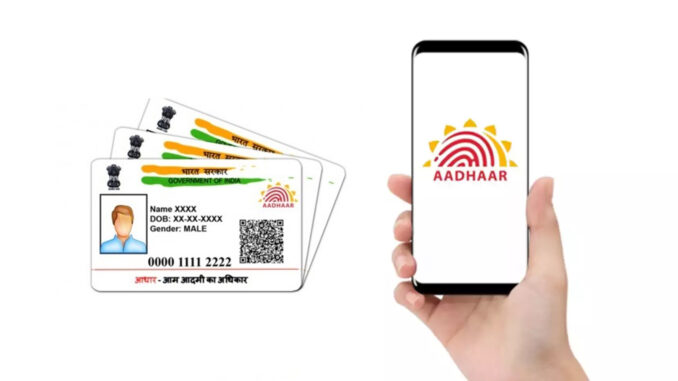
India’s youth are always hungry for quality digital entertainment like OTT streaming, social media and online gaming. Policy makers have taken a long time to regulate digital markets, with crypto and gaming industries the most pressing due to their boom in popularity. Law students and online gaming experts break down the latest Online Gaming (Regulation) Bill, 2022, calling out its shortcomings and making concrete proposals for its improvement.
Aadhar’s Infinite Potential Can Help Curb Digital Markets
According to official sources, Aadhaar is the largest biometric ID system in the world. It is also quite sophisticated, as it took years to plan, program and implement. Government data shows that more than 1.33 billion Indian residents are registered in the system.
Nowadays, the Aadhaar card is used for a variety of public and private services and transactions. Citizens link it to mobile phone numbers, bank accounts, welfare schemes, employment and pension funds. Because of its immense scope and potential, digital media experts suggest it could be used to monitor online entertainment platforms and safeguard consumers in various cases.
Online verification through Aadhaar is a common reality meaning that online activity protection is easily manageable for the likes of a teen patti real cash game or a government lottery scheme. Popular real-money games are a prime example of a sensitive market that would benefit from regulation via public verification mechanisms, given that even much bigger financial transactions are facilitated by Aadhaar.
Online gaming needs player verification, financial security, game transparency and honest payouts. The Aadhaar app system would serve these purposes easily since it links “customer to vendor” digital identities and has guaranteed back-end validation software.
While crypto markets are more volatile and less likely to get formal approval by the RBI, online gaming in India has enjoyed a few years or unrestricted growth industry advocates agree it is high time the legislators established a national regulation for it.
The Online Gaming (Regulation) Bill introduced in Parliament in April has stirred gaming companies and market analysts as it definitely stakes a claim of properly addressing online gaming on a Union level. However, it omits crucial aspects like player privacy, Know-Your-Customer verification protocols and other safety mechanisms related to problem gaming and underage gambling. Most of these can quickly and easily be solved through Aadhaar features and system access.
Policy Makers Need to Draw from Global Best Practices
The Chief Editor of SevenJackpots, Felicia Wijkander, stresses the importance of revising and improving the new Bill. As proposed, it fails to impose regulatory requirements on both foreign gambling sites and domestic operators.
National licensing would not only mean having legitimate websites registered in India through a transparent procedure. It would mean keeping out fraudulent gaming operators and protecting Indian players from anyone without a domestic license.
Legislators need to establish a Gaming Commission with clear tasks and strict requirements for any licensees. This is the proper way of addressing privacy, data protection, KYC, as well as grievance redressal procedures and problem gambling as a social phenomenon. The latter is especially important for youth and children, while even adults need tools like pre-set time and spending limits, psychological support and a fair advertising climate surrounding the gaming market.
Most of these are found in global best practices, Felicia adds, and India already possesses the tools and digital systems to implement them. It is now up to lawmakers to finish the job properly and improve the Online Gaming Bill. This is the only way of promoting desi tech companies (meaning taxes and employment opportunities) while protecting the end user and casual gamer at home.

14037 Articles
Neel Achary is the editor of Business News This Week. He has been covering all the business stories, economy, and corporate stories.
Website
Facebook
Instagram
Twitter
YouTube
LinkedIn





